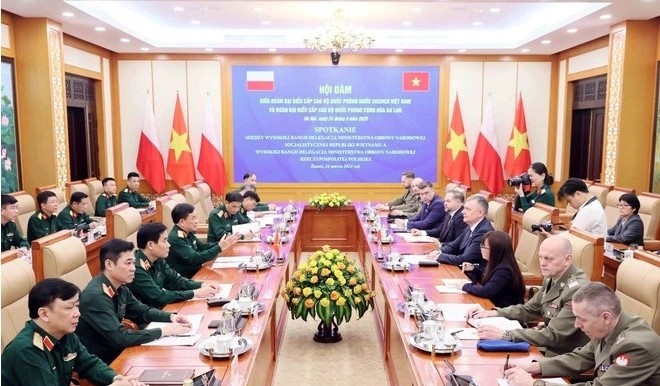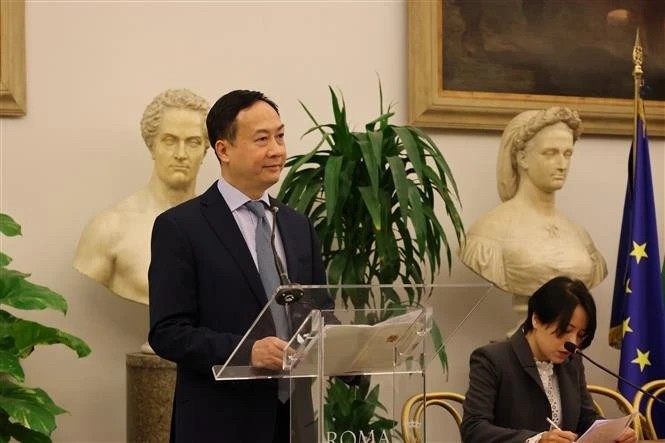Vietnam's Semiconductor Industry Draws Global Spotlight
| Vietnam to Become Crucial Link in Global Semiconductor Value Chain | |
| Semiconductor Industry Gets a Boost from Overseas Vietnamese |
Vietnam is becoming a new and significant player in the global semiconductor industry, according to Asia Times. Highly educated, motivated engineers working at relatively low wages are attracting semiconductor design and packaging companies from the US, Germany, Japan, South Korea, and Taiwan.
 |
| Photo: VGP |
Sharing a similar view, Inteligentcio stated that as one of the world's fastest-growing economies, Vietnam is positioning itself to become a key player in high-impact sectors such as digital transformation, artificial intelligence, and semiconductor components.
Gabor Fluit, regional director for Asia at De Heus Group, said "The type of FDI that Vietnam is trying to attract now focuses heavily on high-tech, semiconductor, and information technology sectors. Therefore, there is a strong focus on innovation and high-quality jobs. The fact that many companies are choosing Vietnam shows that there is a good pool of talent here, but we need to try to make that pool even larger."
To boost the development of its semiconductor industry, Vietnam is undertaking legal and administrative reforms.
Thailand's Nation newspaper notes that Vietnam, Thailand, and Singapore are all vying to become the region's leading semiconductor manufacturing hub. Vietnam is drafting a new digital technology law, offering a number of incentives to global chipmakers investing in the country.
According to Nikkei Asia, Vietnam is compiling a list of incentives for chip manufacturing companies, ranging from tax reductions to expedited export procedures.
Prof. Pankaj Jha of Jindal Global University, India, said "The entire ecosystem related to developing semiconductor and software engineers across Vietnam is important at this time. My suggestion is that Vietnam should consider and join with semiconductor powerhouses such as Taiwan, Japan, South Korea, and the US to see how they have made chip manufacturing a cornerstone of their economies and learn from their experiences. A concerted effort from both the government and the private sector is needed to create this much-needed ecosystem."
In terms of targets, according to Business Standard, Vietnam is striving to shift from labor-intensive industries to high-tech sectors. Vietnam aims to have 50,000 semiconductor engineers by 2030.
"We welcome Vietnam's strategy and are pleased to see that Vietnam has focused on one of the four important pillars of this industry, which is training semiconductor and AI personnel. This is one of the early starts, to prepare for the long journey ahead," said John Neuffer, president and CEO of the Semiconductor Industry Association (SIA). He expressed confidence that any country that focuses on developing human resources, is on the right track, and has the right policies will soon have an important position in the semiconductor supply chain.
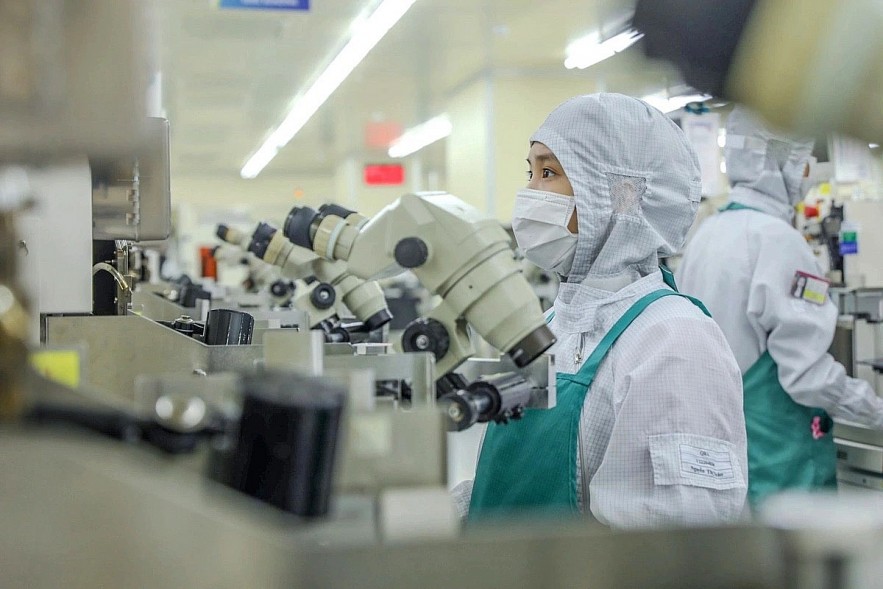 |
| Photo: Ha Quan |
Embarking on the US$1 trillion semiconductor market
Gartner forecasts that the semiconductor industry will generate US$620 billion in revenue in 2024, soaring to US$1 trillion by 2030. With the recent issuance of its semiconductor strategy, Vietnam has set its sights on capturing a significant portion of this massive market.
"We see tremendous opportunities for Vietnam to play a larger role in our supply chain," said John Neuffer.
Meanwhile, Keith Strier, senior vice president of AMD, highlighted four critical elements for the development of the semiconductor and AI industries including people, ecosystem, infrastructure, and policies.
"A self-reliant economy requires the development and integration of AI, aiming for comprehensive, efficient, and transparent AI usage. We are committed to partnering with Vietnam to realize this vision," Strier emphasized.
As investors seek to diversify their semiconductor supply chains, Vietnam is well-positioned to benefit from this wave of investment. However, it is clear that significant efforts will be required to achieve its ambitious goals.
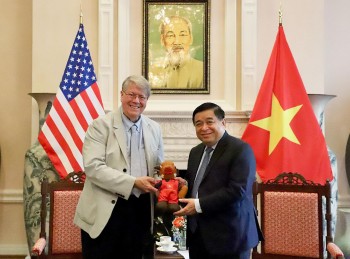 | US Expert Works With Vietnam To Further Develop Semiconductor Industry Vietnamese Planting and Investment Minister Nguyen Chi Dung has invited Dr. Richard Lawton Thurston, former Vice President of the TSMC and the leading non-engineer semiconductor ... |
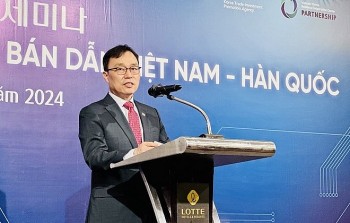 | Vietnam to Become Crucial Link in Global Semiconductor Value Chain Experts in semiconductor industry development consultancy have identified Vietnam as a potential key player in the global semiconductor supply chain. |

